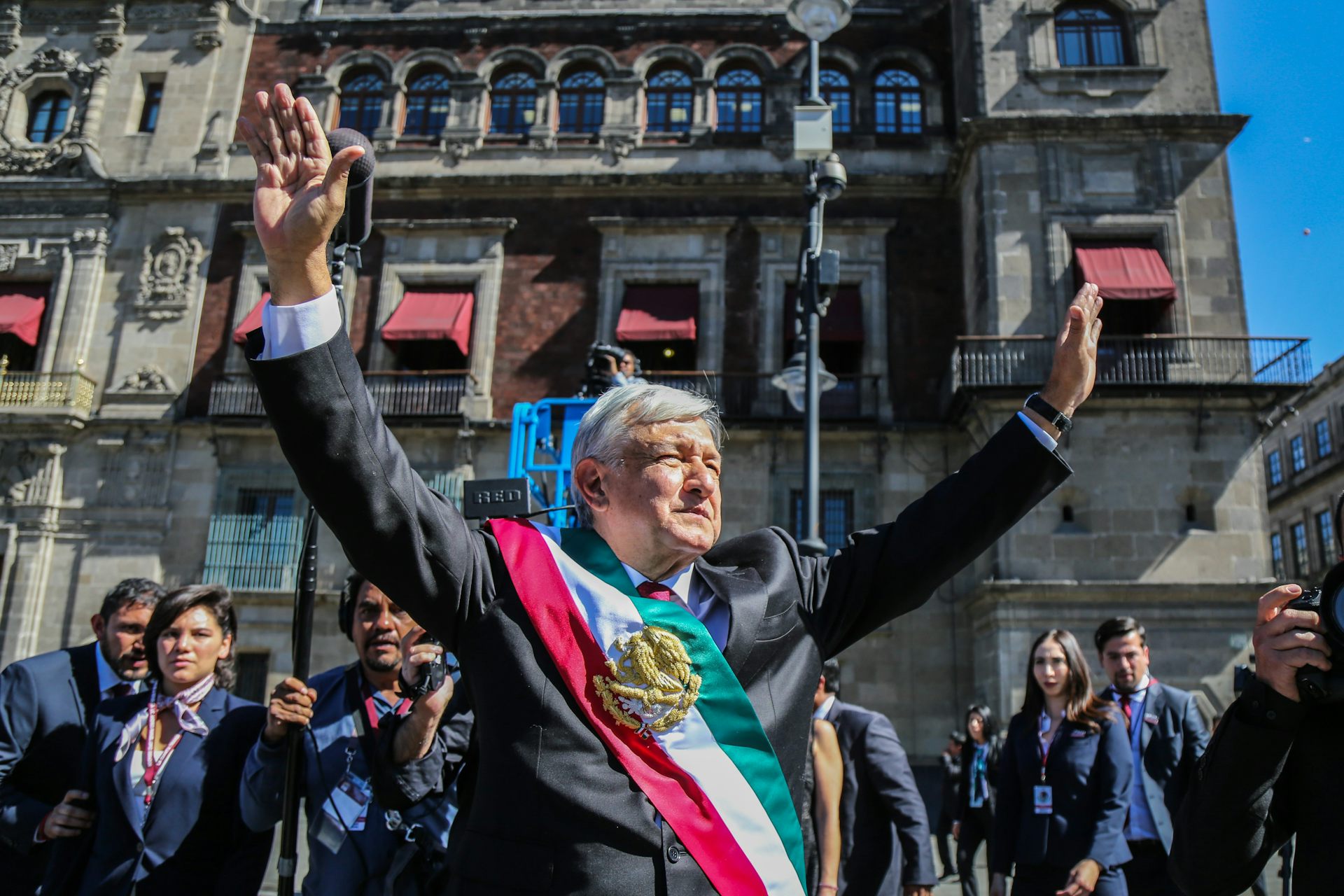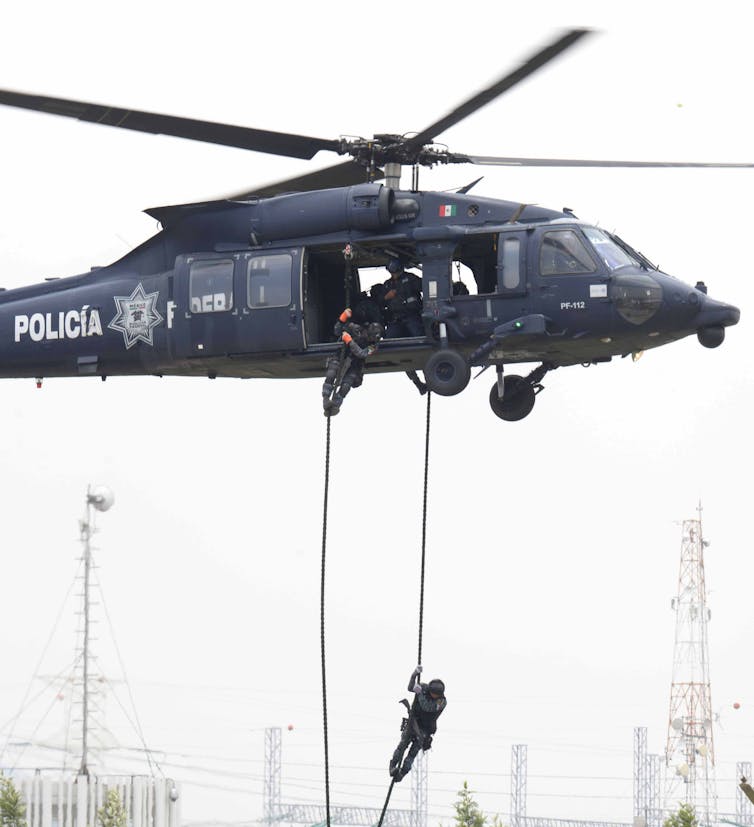
Mexico’s new president, Andrés Manuel López Obrador (known as AMLO), was sworn in on December 1, after a five month transition period following his landslide electoral victory.
Faced with an unassailable crime wave that has ravaged the country since 2007 – when then-president Felipe Calderón (2006-2012) declared an all-out war on organised crime – López Obrador outlined his security strategy shortly before taking office, after months of speculation.
Against a background of nearly 30,000 intentional homicides a year (the worst rate in recent history), the plan contains some sensible – though vague – proposals, such as an overhaul of the prison system, and a rethink of drug prohibition. But his plan has drawn intense criticism for proposing the creation of a new national guard under military control as the main tool to fight crime across the entire country.
The national guard would combine battalions from the army and navy, as well as the civilian Federal Police, into a new security force under the control of the Ministry of Defence. Furthermore, a recruitment drive aims to grow the fledgling force to 150,000 troops within three years. Though the new force will be nominally under civilian control, its training, discipline, values, hierarchy and daily operations will be under military command.
Boots on the ground
During the campaign, López Obrador promised to send the military back to the barracks. A decade of troops on the frontline of the drug wars has left a string of human rights abuses and a piling body count. So the announcement of a new national guard – which came shortly after the Supreme Court struck down a controversial law that permitted the use of the armed forces in policing duties – left many of his supporters in shock.
As the security plan would in effect dissolve the Federal Police – a civilian agency – and eschews any mention of improving the country’s weak municipal and state police agencies, the national guard is seen by many as a permanent step towards military control of the security sector.
This was extensively condemned by Mexican civil society, as well as by international organisations. Amnesty International said the proposal “essentially imitates the failed militarised security model [that] has allowed serious human rights violations to be committed by the armed forces”, while Human Rights Watch called it a “colossal mistake”.
In addition, the proposed force is unlikely to be a panacea. On the one hand, it simply perpetuates the current security strategy that has so far failed to curb violence in the country. On the other, the national guard would still be too small to police a country as large and complex as Mexico, even assuming that it reaches its overly optimistic recruitment targets.
The great paradox of police reform
Most worrying, however, is that the proposed national guard – the fourth new national police force to be created in as many presidencies – is a perfect example of what Daniel Sabet called “one of the great paradoxes of police reform in Mexico”. That “seemingly dramatic changes, such as dissolving one police force and creating an entirely new one, might in practice amount to very little reform of how policing is done”.
To justify the national guard, López Obrador claims that there have been no improvements whatsoever in the quality of the police services in the past 12 years. This is not precisely true. While most police agencies are far from perfect, there have been notable improvements. The Federal Police has vastly improved its technical and human capabilities since 2006, and several state and municipal forces have become successful case studies in their own right.

It is true that such improvements are sparse and have not yet made a notable improvement in security conditions across the country. Yet this is due to the complex nature of the criminal phenomenon, and the underwhelming commitment to institutional building by incoming politicians, who prefer flashy new policies over sticking to a plan.
It is also true that corruption and abuse persist across police departments. But the armed forces are hardly immune to corruption. Studies have shown that the armed forces are more prone to commit torture and human rights abuses, and more lethal than the police. Thus, it is unlikely that militarisation itself will lead to a more effective, incorruptible police force.
Remaking the security institutions every time a president takes power is incredibly counterproductive. Creating new institutions is costly and slow. Everything from the legislation (creating the national guard requires 13 constitutional ammendments and a score of secondary rules) to the mundane (such as uniforms and the colours of patrol cars) must be defined and approved. This process tends to take much longer than anticipated, wasting resources at the expense of actual police work.
A better alternative would focus on a long-term commitment to improving Mexico’s fledgling civilian police agencies. Corruption is an inherent risk of all police agencies, yet there is evidence that corrupted police agencies can be successfully reformed. By creating a new force, rather than solving Mexico’s security crisis, López Obrador will be setting the country back in its long and arduous road towards capable policing.![]()
Patricio R. Estévez-Soto, PhD Candidate in Security and Crime Science and Teaching Fellow in the UCL School of Public Policy, UCL
This article is republished from The Conversation under a Creative Commons license.


